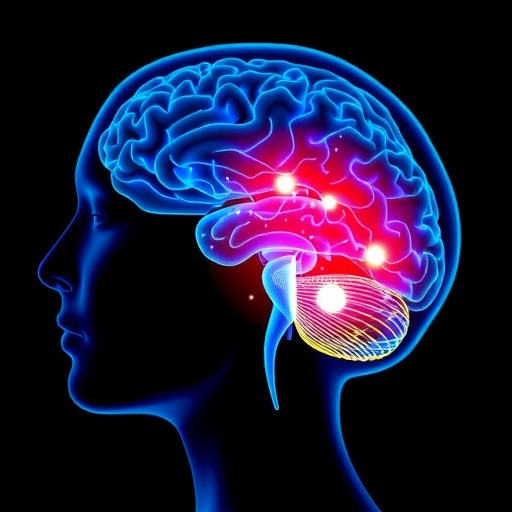In the evolving landscape of traumatic brain injury (TBI) research, an often-overlooked dimension is the intersection between hormone fluctuations and brain trauma, especially in menopausal women. Emerging research underscores the critical importance of integrating hormonal status, particularly the menopause transition, into the diagnostic and therapeutic frameworks for TBI care. A novel study set to be unveiled at the 2025 Annual Meeting of The Menopause Society in Orlando highlights this urgent need, illuminating how menopause-related neuroendocrine changes can profoundly influence brain injury outcomes.
Menopause, a significant biological milestone, precipitates dramatic neuroendocrine shifts that extend beyond reproductive implications, substantially affecting cognitive and physiological functions. These hormone fluctuations have been shown to amplify or modify the symptomatology of TBIs, yet current clinical practices remain largely blind to these nuanced overlaps. Conventional TBI assessment scales fail to integrate hormone status, potentially masking the complexity of symptoms experienced by midlife women, and inadvertently contributing to prolonged recoveries or misdiagnosis.
The new study rigorously examined the intricate symptomatology that intersects between TBI and menopause, aiming to discern synergies and divergences in patient experience. By analyzing existing assessment tools for both conditions, researchers unveiled patterns of overlap across neurocognitive deficits, somatosensory disturbances, and mood disorders—domains critically influenced by fluctuating estrogen and progesterone levels during menopause. This intersection opens avenues for more refined, hormone-informed clinical approaches that transcend conventional symptom frameworks.
A pivotal discovery of the research is the identification of vasomotor symptoms, such as hot flashes, as potential neuroendocrine markers that should be incorporated into TBI evaluations for menopausal women. These symptoms, traditionally associated with menopause alone, may also signify altered neurophysiological states post-TBI, complicating clinical presentations and recovery trajectories. By embedding such hormone-driven symptomatology into TBI diagnostic tools, clinicians can better stratify risk, tailor interventions, and ultimately improve patient outcomes.
The implications of these findings resonate deeply with healthcare practitioners oriented towards precision medicine. As Dr. Katherine Buzzanca-Fried of the University of Florida articulates, hormonal transitions during menopause are not just peripheral background variables; they are central modifiers of physiological and cognitive resilience following brain injury. Recognition of these factors is crucial for differentiating symptom origins and formulating effective, individualized rehabilitation protocols, even for mild TBIs such as concussions.
Moreover, the study reinforces the broader scientific imperative to embed sex as a fundamental biological variable in medical research and clinical decision-making processes. Dr. Stephanie Faubion, medical director for The Menopause Society, stresses that understanding reproductive stage and hormone status is indispensable for clarifying whether treatment modalities need gender-specific calibration. This approach acknowledges the clinical complexity introduced by overlapping menopausal and TBI symptom profiles, which may otherwise confound patients and providers alike.
The current meta-analytical study synthesizes data from diverse clinical cohorts, employing advanced neuropsychological assessments and hormonal profiling to map symptom intersections with unprecedented granularity. It challenges prevailing paradigms that compartmentalize neurological insults and endocrine transitions as discrete phenomena, advocating instead for an integrated biopsychosocial model. This paradigm shift promises to uncover hidden neuroendocrine mechanisms that modulate brain plasticity and repair in midlife women.
Clinicians are thus encouraged to adopt a multi-dimensional lens when evaluating women with brain injuries, considering not only the injury mechanics but also the hormonal milieu that can subtly but significantly alter symptom expression. Expanding TBI assessment protocols to include hormone-relevant questionnaires can aid in capturing the full spectrum of cognitive and somatic challenges faced during menopause, fostering more inclusive and effective care strategies.
Critically, this work also stimulates a dialogue about healthcare equity and inclusivity. Menopausal women represent a demographic often underrepresented in clinical TBI trials, leading to treatment algorithms predominantly informed by male-centric data. By addressing this gap, the study not only promotes sex-specific medical rigor but also challenges systemic biases within neurological and endocrine research domains.
The forthcoming presentation at The Menopause Society’s annual symposium is anticipated to catalyze further investigations and clinical trials aimed at tailoring TBI interventions to hormone transition stages. Such efforts align with contemporary calls for personalized medicine frameworks that integrate hormonal, cognitive, and psychological health parameters, potentially revolutionizing brain injury management for women traversing midlife.
As the scientific community awaits a broader dissemination of these findings, it becomes clear that recognizing hormonal transitions as pivotal influencers on brain health post-injury is paramount. This research opens promising avenues for developing novel biomarkers and therapeutic targets that harness the interplay between endocrine dynamics and neural recovery processes in menopausal women afflicted by TBIs.
Ultimately, this innovative study underscores a transformative approach: by weaving hormone-informed assessments into TBI care, healthcare professionals can elevate diagnostic accuracy, optimize treatment efficacy, and enhance quality of life for millions of women navigating the dual challenges of menopause and brain injury.
Subject of Research: People
Article Title: Toward Hormone-Informed Brain Injury Care: Unifying Assessment for Menopause and TBI in Women
News Publication Date: October 21, 2025
Web References: menopause.org
References: Menopause (Journal)
Image Credits: Not provided
Keywords: Health and medicine
Tags: cognitive effects of menopause on brain traumahormonal fluctuations and TBI outcomeshormonal status in TBI diagnosisimplications of menopause for brain recoveryintersection of menopause and neurocognitive disordersmenopause and traumatic brain injury researchmenopause-related brain injury impactsmidlife women’s health and TBIsneuroendocrine changes in menopausal womensymptom overlap between menopause and TBIsTBI assessment tools and hormone statustherapeutic frameworks for menopause and TBI care





